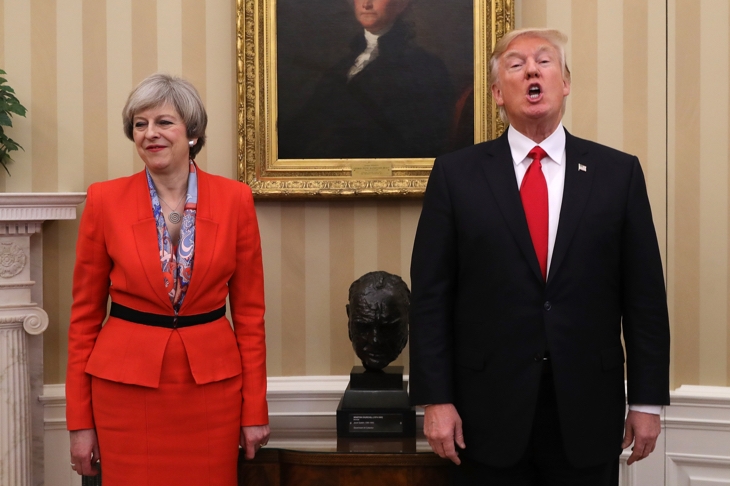It speaks volumes about protectionism that while the share prices of steel and aluminium makers rose on the news that President Trump is to place tariffs on imports (from exactly which countries he didn’t say), shares in companies which use large amounts of steel immediately plunged: General Motors by 3.7 per cent, Ford by 3 per cent. It is always the same with protectionism. Either Donald Trump hasn’t studied the effects of George W Bush’s experiment with steel tariffs in 2002 or he doesn’t care. On that occasion, while creaking steel companies enjoyed a temporary reprieve, the overall effect on the economy was hugely negative. According to CITAC – a US CBI – the tariffs went on to cost US industry as a whole 200,000 jobs – as steel-using companies found their input costs soaring. The results were so alarming that Bush lifted the tariffs after 18 months, halfway through their intended life.
None of this, however, is going to come as much comfort to Theresa May who today will make a speech portraying a future of a post-Brexit Britain that is outward-looking and eager to seize new opportunities to trade with the wider world.

Get Britain's best politics newsletters
Register to get The Spectator's insight and opinion straight to your inbox. You can then read two free articles each week.
Already a subscriber? Log in








Comments
Join the debate for just $5 for 3 months
Be part of the conversation with other Spectator readers by getting your first three months for $5.
UNLOCK ACCESS Just $5 for 3 monthsAlready a subscriber? Log in